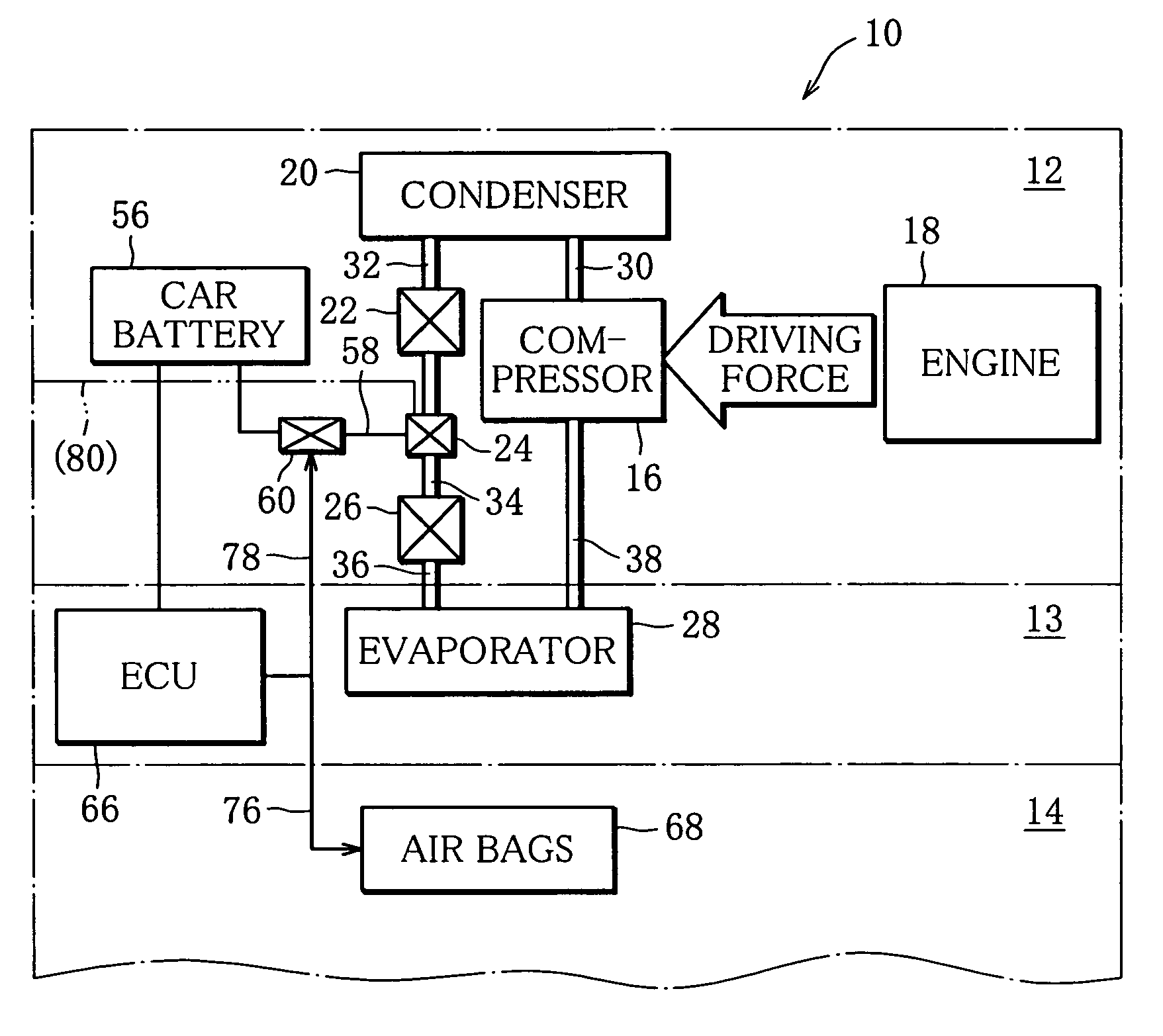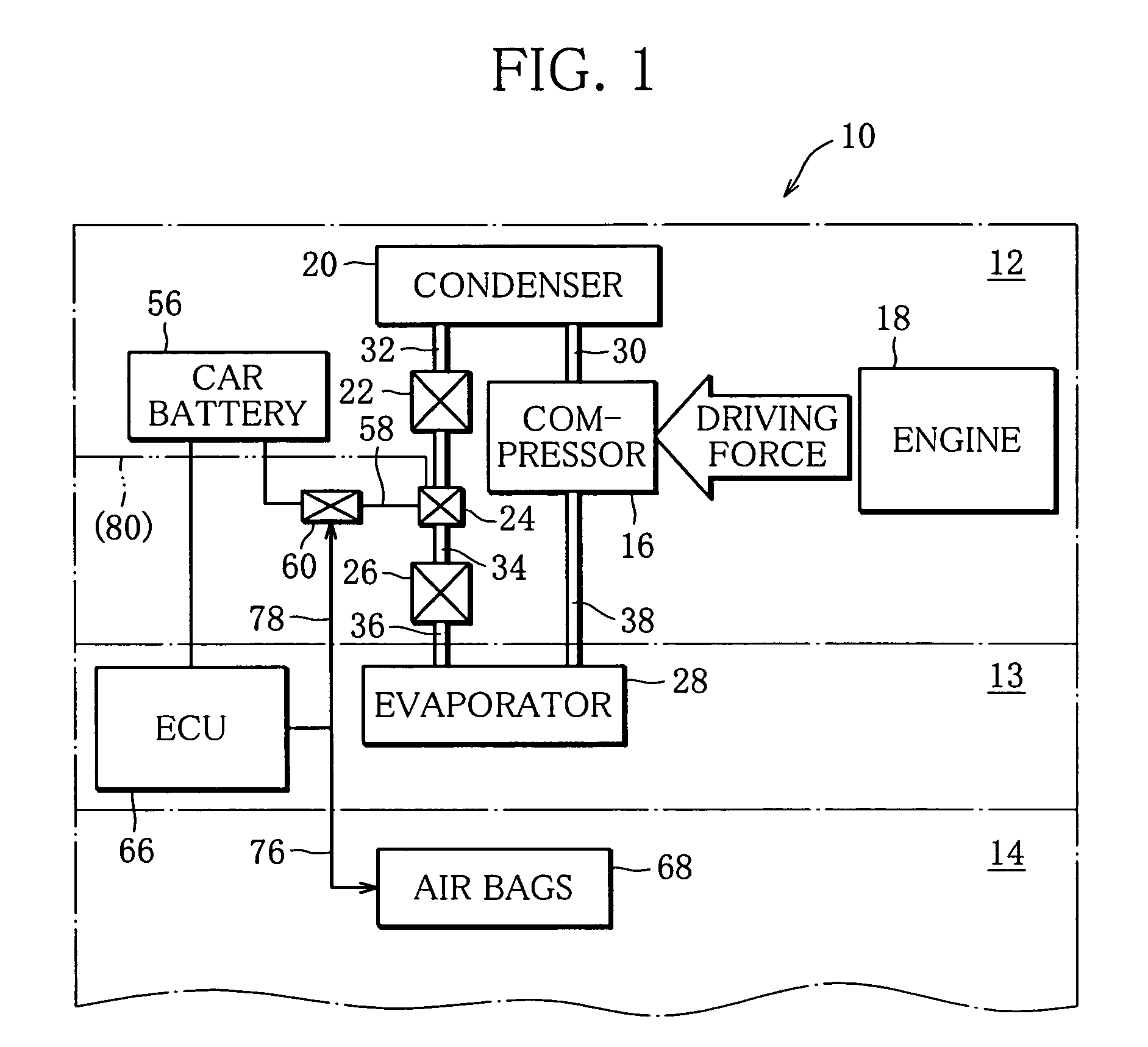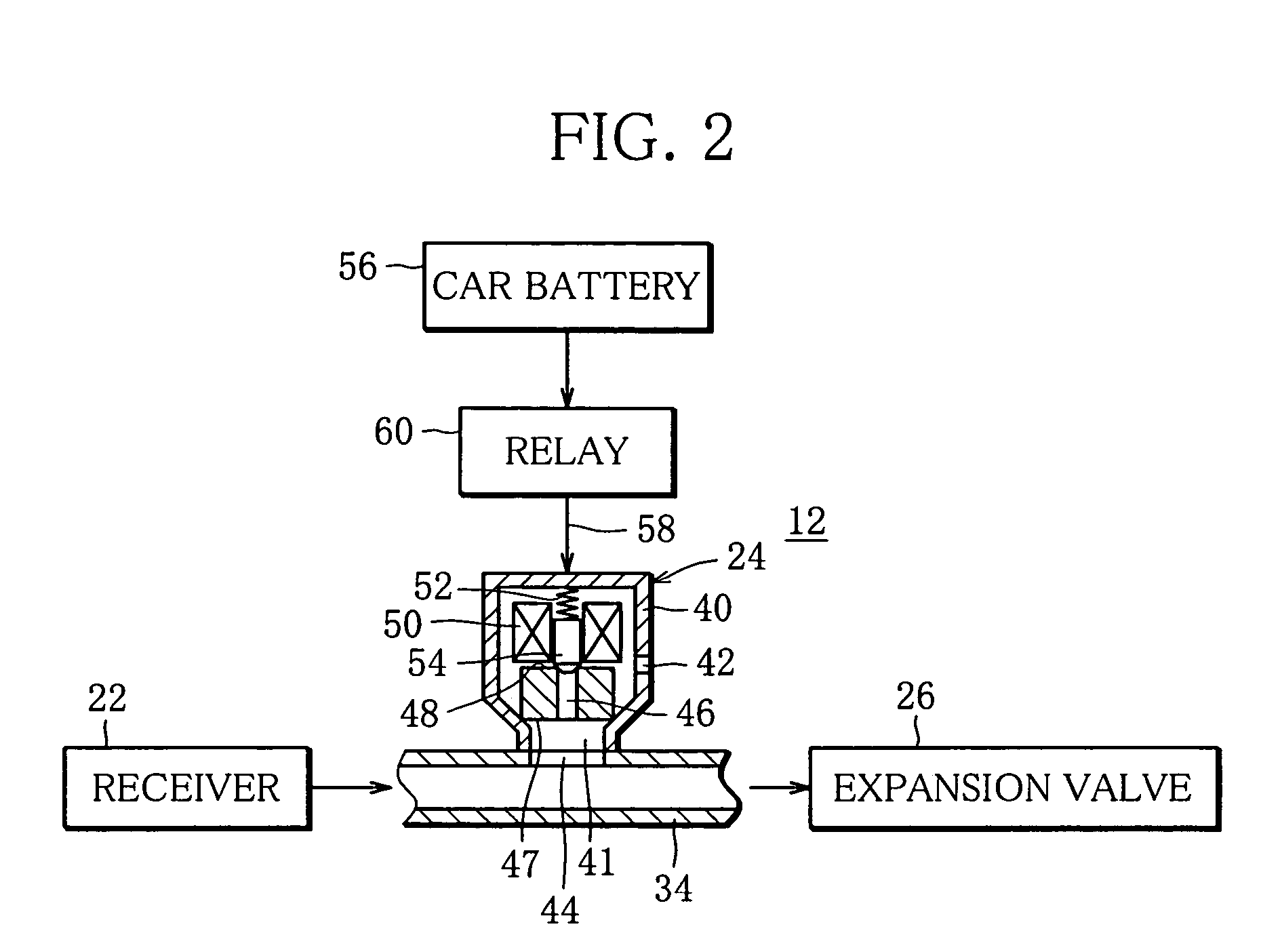Air-conditioning system for vehicle
- Summary
- Abstract
- Description
- Claims
- Application Information
AI Technical Summary
Benefits of technology
Problems solved by technology
Method used
Image
Examples
Embodiment Construction
[0025]As shown in FIG. 1, an air-conditioning system 10 for a vehicle has a circulation passage extending from an engine room 12 of the vehicle into an instrument space 13 located between the engine room 12 and vehicle compartment 14. The system can adjust the temperature inside the vehicle compartment 14 to a desirable set temperature using the latent heat of a refrigerant that flows in the circulation passage.
[0026]A compressor 16 is disposed in the circulation passage in the engine room 12 and is operated by the driving force of an engine 18 housed in the engine room 12. The compressor 16 sucks the gaseous refrigerant through a suction port thereof, compresses the refrigerant therein and delivers the refrigerant as a high-temperature and high-pressure gas toward the downstream of the circulation passage from a discharge port thereof. That is, the compressor 16 creates the flow of the refrigerant while compressing the refrigerant.
[0027]A condenser 20 is disposed in the circulation...
PUM
 Login to View More
Login to View More Abstract
Description
Claims
Application Information
 Login to View More
Login to View More - R&D
- Intellectual Property
- Life Sciences
- Materials
- Tech Scout
- Unparalleled Data Quality
- Higher Quality Content
- 60% Fewer Hallucinations
Browse by: Latest US Patents, China's latest patents, Technical Efficacy Thesaurus, Application Domain, Technology Topic, Popular Technical Reports.
© 2025 PatSnap. All rights reserved.Legal|Privacy policy|Modern Slavery Act Transparency Statement|Sitemap|About US| Contact US: help@patsnap.com



